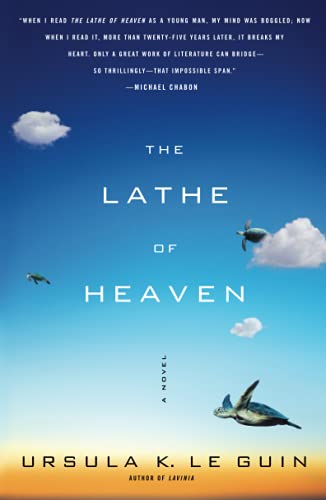el dang reviewed The lathe of heaven by Ursula K. Le Guin
Weirdest thing I've read by Le Guin
4 stars
It's funny how of all the books I've read by Le Guin, the one that's set on a baseline plausible Earth-in-my-lifetime would turn out to be the weirdest. Also funny how in what starts as a pretty reasonable extrapolation from 1971 to ~2000 has one repeated glaring error: multiple references to the perfect cone of Mount St. Helen's.
Against that background, we get a story of a man running away from his dreams because they give him a power he doesn't understand and can't control. And another man who wants to channel that power, setting up a modern Daoist fable about the hubris of trying to control too much.
It's funny how of all the books I've read by Le Guin, the one that's set on a baseline plausible Earth-in-my-lifetime would turn out to be the weirdest. Also funny how in what starts as a pretty reasonable extrapolation from 1971 to ~2000 has one repeated glaring error: multiple references to the perfect cone of Mount St. Helen's.
Against that background, we get a story of a man running away from his dreams because they give him a power he doesn't understand and can't control. And another man who wants to channel that power, setting up a modern Daoist fable about the hubris of trying to control too much.

